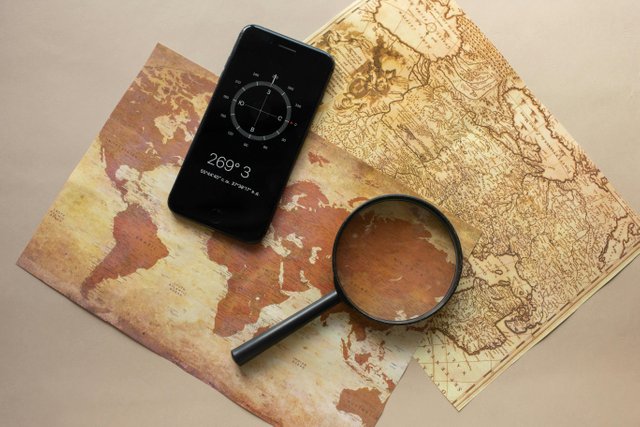Effective Techniques for Excelling in Geography Assignments
Geography is more than just memorizing maps and place names; it's about understanding the complex relationship between people, places, and environments. Excelling in geography assignments requires a blend of analytical skills, creative thinking, and thorough research. If you're looking to improve your performance in geography, this guide offers practical techniques to help you succeed.

1. Understand the Assignment Requirements
Before diving into your geography assignment, it's crucial to fully understand what is being asked. Are you required to write an essay, create a map, or analyze a case study? Each type of assignment has its own set of expectations and guidelines. For instance, an essay might require a deep analysis of geographic theories, while a map creation task might focus more on accuracy and creativity.
Tip: Always read the assignment brief carefully and highlight key terms. If anything is unclear, don't hesitate to ask your teacher for clarification. Knowing exactly what is expected will save you time and ensure you're on the right track from the start.
2. Conduct Thorough Research
Research is the backbone of any successful geography assignment. Whether you're exploring the causes of desertification, the impact of urbanization, or the effects of climate change, solid research will provide the evidence and examples needed to support your arguments.
Research is the backbone of any successful geography assignment. Whether you're exploring the causes of desertification, the impact of urbanization, or the effects of climate change, solid research will provide the evidence and examples needed to support your arguments.
If you’re struggling to find reliable sources or organize your information, you might consider seeking geography assignment help online by Edubirdie. This can provide you with expert guidance and resources that can save you time and enhance the quality of your work.
Start by gathering information from a variety of sources: textbooks, academic journals, reputable websites, and documentaries. Remember to take notes and organize your research in a way that makes it easy to reference later.
Tip: Use reliable and up-to-date sources. Geography is a dynamic field, and the data or theories from a few years ago might be outdated. Databases like Google Scholar and JSTOR are excellent for finding peer-reviewed articles.

3.Develop a Strong Thesis or Argument
In assignments where you're required to write an essay or report, having a clear and concise thesis statement is essential. Your thesis is the main argument or point that you will support throughout your paper. It should be specific and directly related to the assignment topic.
For example, if you're writing about the impacts of deforestation, a strong thesis might be: "Deforestation in the Amazon Basin significantly contributes to global climate change and biodiversity loss." This statement gives your paper direction and helps you stay focused on the main points.
Tip: After developing your thesis, create an outline to organize your thoughts and structure your assignment. This will make the writing process smoother and help you maintain a logical flow.
4.Incorporate Visual Aids
Geography is a visual subject, and incorporating maps, charts, graphs, and images can greatly enhance your assignment. Visual aids not only make your work more engaging but also help illustrate your points more clearly.
For example, if you're discussing population growth in urban areas, a graph showing population trends over time can provide a powerful visual representation of your data. Similarly, maps can be used to show spatial patterns or geographic phenomena.
Tip: When using visual aids, make sure they are clear, relevant, and properly labeled. Always refer to them in your text, explaining what they show and how they support your argument.
5.Analyze and Interpret Data
Geography assignments often require you to analyze and interpret data. This could involve working with statistics, geographic information systems (GIS), or even qualitative data from surveys and interviews. The key is to not just present the data but to explain what it means in the context of your assignment.
For instance, if you're analyzing temperature data to discuss climate change, don't just list the temperatures—explain the trends and what they imply about global warming.
Tip: When interpreting data, consider the broader geographic implications. Developing these analytical skills can also be valuable for those considering a career in geography, as such expertise is crucial in the field. This data should be connected to human activities, environmental changes, and policy decisions to provide a comprehensive analysis.
6.Focus on Clarity and Conciseness
Clear and concise writing is crucial in geography assignments. Avoid unnecessary jargon or overly complex sentences that could confuse the reader. Instead, focus on presenting your ideas in a straightforward and logical manner.
Each paragraph should have a clear main idea and contribute to your overall argument. Transition words like "furthermore," "however," and "therefore" can help guide the reader through your points and create a cohesive narrative.
Tip: After completing your draft, take the time to revise and edit your work. Look for areas where you can simplify your language or clarify your ideas. Proofreading is also essential to catch any spelling or grammatical errors.
7.Practice Critical Thinking
Critical thinking is at the heart of geography. Rather than simply describing geographic phenomena, you should be questioning why they occur, how they impact different regions, and what can be done to address related challenges.
For example, if you're studying urban sprawl, think about the economic, social, and environmental factors that contribute to it. Consider the benefits and drawbacks of different urban planning strategies.
Tip: Engage with different perspectives and theories. Geography is an interdisciplinary field, so drawing on insights from economics, sociology, environmental science, and politics can deepen your analysis.
Conclusion
Excelling in geography assignments requires a combination of careful preparation, thorough research, and analytical thinking. By understanding the assignment requirements, developing a strong thesis, incorporating visual aids, and practicing critical thinking, you can create compelling and insightful geography assignments. Remember, geography is not just about memorizing facts—it's about understanding the world around you and thinking critically about the challenges and opportunities it presents.
With these techniques, you'll be well-equipped to tackle any geography assignment with confidence and skill. So the next time you're faced with a challenging task, remember that a well-organized approach and a curious mindset are your best tools for success.